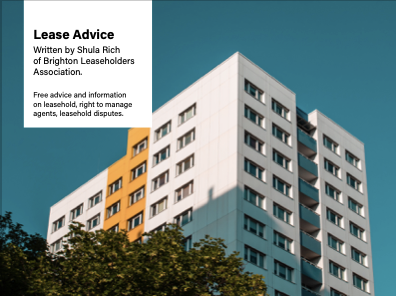Leasehold Enfranchisement
Buying the Freehold
Leaseholders buy out the ground owner (the freeholder).
The leaseholders form a company.
All participating leaseholders can take a share in the company.
Two sets of rules are now involved:
Company law, which contains the rules for the shareholders in the new freeholding company
Landlord and tenant law, which contains the rules for the relationship between the lessees and the new company. These follow the present rule books – 2002 Commonhold and Leasehold Reform Act. (CLRA)
The resulting organisation:
Lessee/freeholders in theory now wear ‘two hats’.
It is not necessary to have 100% of the leaseholders involved, although desirable.
At present enfranchisement is the only way to achieve democratic self-rule for blocks of flats.
‘Commonhold’ is less cumbersome, having only one rule book, but under CLRA needs 100% consent from leaseholders.
Rules for enfranchisement:
The ‘rules’ for buying the freehold have changed to become less onerous in terms of numbers, but more complicated to organise.
The sum to be paid is built up on four calculations:
Paying the freeholder to give up the ground rent.
Buying out what the ground might be worth when the lease ends.
Paying for any profits the freeholder might have lost out on.
Paying because we now have something said to be worth more – property with share of freehold.
The last is called ‘marriage value’. It is based on a proportion of the increase in the actual value of the flat – which is only still in good repair (still of value) because the leaseholder has been paying to maintain it.
Only the leaseholder will pay ‘marriage value’ because the freehold is more valuable to the person living in the flat, than anyone else.
The price quoted for enfranchisement by a freeholder may be three times as much as the price offered by a leaseholder. Professional valuers, employed by both sides produce widely differing calculations for the same four components particularly ‘marriage value’. Government support for marriage value:
Supports monopoly pricing.
Is divisive. Splitting a block between ‘haves’ and ‘have-nots’.
Permanently disenfranchises the less well off in a block.
Represents a windfall gain to the freeholder.
Puts an unfair burden on those leaseholders who have funds
Goes against the moral principle it recognised in its 1966 White Paper and 1967 Leasehold Reform Act:
‘The Government has decided that a solution must be found to right this injustice. In the Government’s view the basic principles of a reform which would do justice between the parties should be that the freeholder owns the land and the occupying leaseholder is morally entitled to the ownership of the building which has been put on and maintained on the land’
(‘Why Did We Vote For Them’ LEA News Letter. October 2000)
The possibility of enfranchisement depends, under current rules, on the price asked by the freeholder for the ‘marriage value’. But the freeholder does not own the building, and has no claim on a proportion of its value.
This rule is an anomaly holding back thousands from buying their freeholds. It disenfranchises leaseholders who cannot afford to pay ‘marriage value’.
It creates a new inequality where none existed before.
Download a copy of the Leaseholders Guide below.

